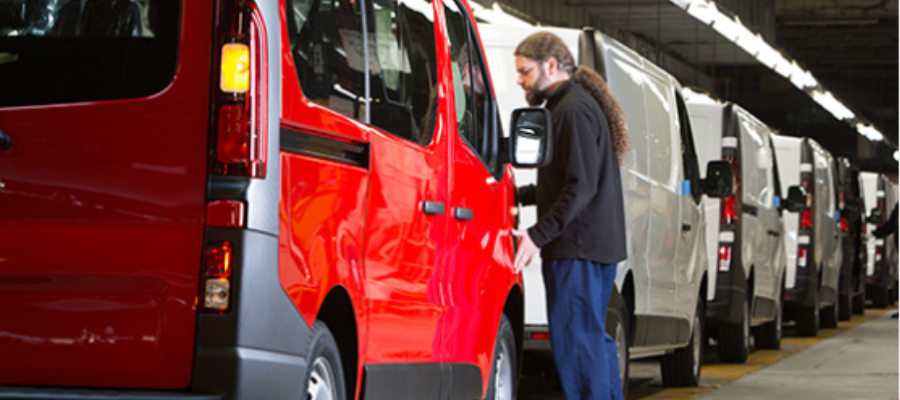🕒 Article read time: 2 minutes
New van market suffers half-year decline following supply chain shortages

The new van market in the UK declined for the sixth consecutive month in June, falling by almost a quarter (23%), according to the latest figures published by the Society of Motor Manufacturers and Traders (SMMT).
The trade body largely attributes 2022’s challenging first half to ongoing global supply chain issues, most notably of semiconductors. However, SMMT says the half-year decline suffers in part from its comparison to 2021, which saw the third best start to a year as pent-up demand for online delivery vehicles and a bounce-back in the construction sector boosted registrations. Despite demand for new vans remaining robust for most of the year, a shortage of components has lengthened lead times and impacted deliveries, with the market more than a quarter (26.5%) below pre-pandemic levels.
The registration of battery electric vans (BEVs) was up by more than half (52.4%) in June to 2,015 units, continuing a trend seen across the first half of 2022. Although 2022 has seen a raft of electric van model launches, BEVs still only account for one in 13 new van registrations in the UK.
Mike Hawes, SMMT Chief Executive, said: “The impact of the global shortage of semiconductors is severe, constraining supplies and extending lead times for commercial vehicles. While electric vehicle registrations are growing in response to an ever wider choice of plug-in models, a successful transition means accelerating uptake at pace, and this task could not come at a more difficult time. With inflation and energy costs hitting the pockets of UK van buyers, as well as the industry, operators need to be assured that the charging infrastructure can meet their needs and that fiscal and grant incentives are in place for the long term.”
Denise Beedell, Public Policy Manager, Logistics UK, said: “These latest figures from SMMT bear out what we’ve been hearing from our members – that global supply chain shortages are lengthening the lead times of new vans being registered and delivered.
“While it is encouraging to note that the sales of BEVs continues to grow, it is sobering to learn that electric models represent less than 8% of new van sales. With the sale of new fossil fuel vans being phased out in just eight years, more must be done to help enable fleets to transition to alternatively fuelled vans.”
*www.logistics.org.uk/van
Published On: 14/07/2022 16:00:18

Comments Section
If you are a Logistics UK member login to add comments.